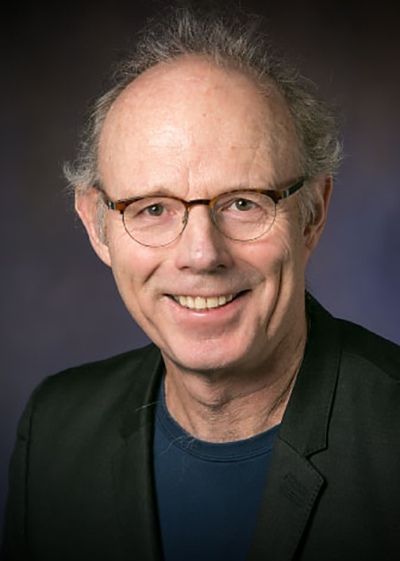Symposium to honor influential professor

Several units are planning a symposium to honor more than three decades of research, teaching, and service by Thomas Bassett, professor of geography and geographic information science, who is retiring from the University of Illinois.
On Friday, March 10, the Department of Geography & Geographic Information Science, Social Dimensions of Environmental Policy, and the Center for African Studies will conduct the symposium, called Political Ecology of Global Development and Environment, from 1-5 p.m. in Room 126 at the School of Information Sciences, 501 E. Daniel St., Champaign.
Five of Bassett’s long-time friends and professional colleagues, including two of his former doctoral students, will celebrate his foundational contributions to the field, share their research, and participate in discussion. Presentation topics will include vulnerability to hunger, crop registries, carbon forestry, and enclosure in Africa, and urban agriculture in California’s Silicon Valley.
Bassett is credited with first using the term “political ecology,” which combines political economy, environmental history, and ecology to study connections between nature and society. In “The Political Ecology of Peasant-Herder Conflicts in the Northern Ivory Coast,” published in a 1988 issue of Annals of the Association of American Geographers, Bassett examines the conflict that arose between migrating Fulani cattle herders and Senufo peasants in the Ivory Coast.
The Ivorian government initially welcomed the Fulani because their cattle increased the country’s beef production, but the Senufo peasants fought their presence after the cattle caused severe damage to their crops in the already drought-damaged Sahel desert.
To understand the conflict’s broader context, Bassett conducted interviews with the peasants, herders, and livestock development officials linking small-scale resource conflicts to a larger political economy. The contextual approach outlined in Bassett’s paper quickly became a foundational text in the early stages of political ecology.
Bassett’s work has been widely recognized throughout his career. His book The Atlas of World Hunger (co-authored by Alex Winter-Nelson) was awarded the James M. Blaut Innovative Publication Prize from the Cultural and Political Ecology Group of the AAG in 2011. In 2014, he received the University of Illinois’ Sheth Distinguished Faculty Award for International Achievement.
Bassett’s teaching was also highly regarded by students; his introductory development geography course routinely enrolled more than 500 undergraduates, and he taught upper-level courses in development geography, geospatial technologies and society, and political ecology.
Bassett said that his greatest achievements in research are comprised of specific moments in his life, rather than a single completed task.
“When I look back, [I recall] moments such as publishing in premier academic journals, obtaining grants to continue my research in Africa, seeing my graduate students get university teaching positions, and being the first faculty director of LAS Global Studies,” Bassett said.
Bassett joined the Department of Geography and Geographic Information Science (then just the Department of Geography) in 1984 as visiting assistant professor, and was promoted to full professor in 2002. Tom served as acting director of the Center for African Studies in 1992-93, and as interim director in 1994-95. Most recently, he was director of LAS Global Studies between 2013 and 2016. His research has focused broadly on development geography, with specific foci on cotton, food, and land rights in Côte d'Ivoire and beyond. He also writes on the history of cartography of Africa.
Despite his retirement, Bassett’s impact will continue to be felt throughout the international discipline of geography. He is part of a major National Science Foundation project on food insecurity until 2021, and his graduate student advisees are working, teaching, and conducting research in the United States, France, and West Africa.
“My wife, Carol Spindel, and I are rebuilding our house in Katiali, the village in northern Côte d’Ivoire where we have conducted research and built long term relationships over the past 35 years,” Bassett said. “We also plan to build a library in Katiali.”
With his newfound free time, Tom plans to surf, play fretless banjo for The Young and the Fretless, and write about the history of the cartographic conquest of colonial West Africa.








